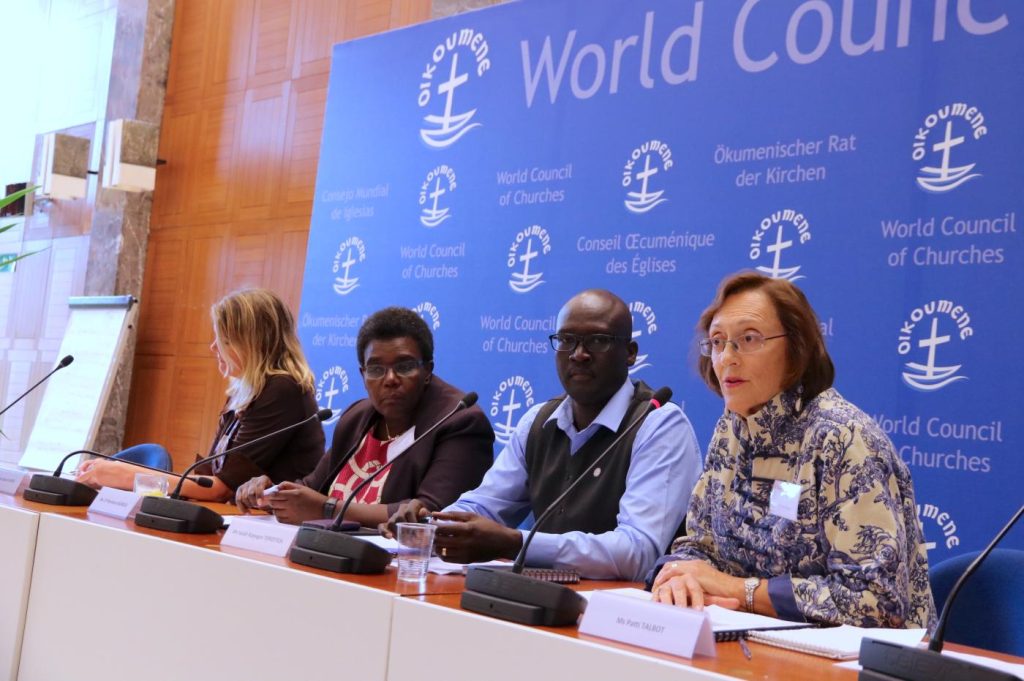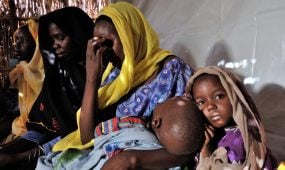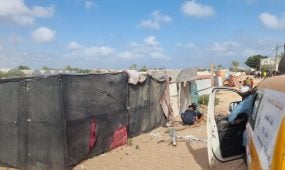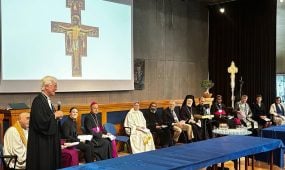A journey through advocacy, women's leadership, and the Korea peace appeal
International
The call for peace in Korea has resonated for decades, echoing across international borders and faith communities. Patti Talbot, who has served The United Church of Canada for nearly 30 years, sheds light on the enduring relevance of ecumenical advocacy efforts for peace in the Korean Peninsula
In 2018, The United Church of Canada’s General Council took a resolute stance, declaring that the church was called by God to collaborate with partners for peace, justice, and reunification in the Korean Peninsula.
“Seventy years is too long. The call for all who seek justice, peace, and care of creation is to end the Korean War now. Engagement in the Korea Peace Appeal is an opportunity for the United Church to renew our commitment to partnership in God’s mission in Korea,” said Talbot.
She further emphasized that negotiating a peace agreement in Korea holds several significant benefits. First, it would end the prolonged Korean War and initiate steps toward denuclearization, reducing the risk of conflict. Second, it would improve the dire humanitarian conditions in North Korea, as peace can facilitate humanitarian aid delivery. Finally, it would redirect resources from military expenditures to address basic human needs, benefiting not only South Korea but also nations with a military presence via the US-led United Nations Command in South Korea.
“God’s people in Korea hold the vision for reconciliation and peace based on justice on the Korean Peninsula. Through partnership in God’s Mission, The United Church of Canada expresses its support for and solidarity with partners in advocacy to end the Korean War, overcome the division of hatred and confrontation, and move toward reconciliation and reunification. Engagement in the Korea Peace Appeal is a concrete living out of this commitment,” said Talbot.
Advertisement
She further added that “the Korea Peace Appeal campaign reflects the sure knowledge that we are stronger and more effective together with others. Collaboration with others beyond the ecumenical family is the only way to work to strengthen the global movement to build peace – in Korea and elsewhere. As people of faith, we must work with others in civil society nationally, regionally, and globally to promote engagement and dialogue in Korea, challenge sanctions, and work toward a peace treaty to end the Korean War.”
Reflecting on reconciliation. Talbot stated that whether in the context of Indigenous relations in Canada or worldwide, it is a challenging and complex process. “It requires patience, listening, and trust-building, and an acknowledgment of our own complicity in structures of oppression,” said Talbot.

Patti Talbot (first from right) speaking at the Ecumenical Strategic Forum on Diakonia and Sustainable Development, taking place from 3 to 6 October 2017 at the Ecumenical Centre in Geneva, Switzerland. Photo: Ivars Kupcis/WCC
Highlighting the crucial role women play in peace efforts, Talbot stated that women peacemakers bring a unique perspective to the table, rooted in their experiences and a commitment to avoiding violence. They consider the practical implications of conflict on communities, infrastructure, the economy, and families, making them effective advocates for peace. Talbot underscored that the presence of women at peace negotiations is imperative, as recognized by United Nations Security Council Resolution 1325 and the “Women, Peace, and Security” agenda.
Advertisement
Recounting the Vancouver Foreign Ministers’ Meeting on Security and Stability on the Korean Peninsula in January 2018. Talbot shared that while foreign ministers gathered to discuss the North Korea crisis, 16 women representing peace movements, women’s networks, faith-based organizations, and civil groups from around the world convened the Vancouver Women’s Forum on Peace and Security on the Korean Peninsula. They advocated for diplomatic peace processes and the inclusion of women in negotiations.
She shared that although the women were not part of the formal meeting, they had a significant impact on the proceedings. They engaged in a civil society roundtable with Canadian Foreign Minister Chrystia Freeland, providing recommendations based on their collective experiences. Despite the disappointment that the final statement emphasized “maximum pressure” and increased sanctions, the women’s presence and advocacy expanded the global movement for peace on the Korean Peninsula.
Talbot’s vision for a peaceful, prosperous, and unified Korea is deeply rooted in faith and collaboration. She believes that partnership and collaboration with diverse stakeholders, both nationally and internationally, are essential for building peace. The Korea Peace Appeal campaign represents a realization that collective efforts are more powerful and effective.
“In the words of the parable of the widow and the unjust judge, we are reminded to pray always and do not lose heart, for persistence can bring forth transformation even in the face of seemingly insurmountable challenges,” added Talbot.
She further added that through advocacy, diplomacy, and the inclusion of diverse voices, we can collectively move closer to realizing the dream of peace, justice, reconciliation, and reunification on the Korean Peninsula.
First published on the World Council of Churches website on 25 September 2023.





